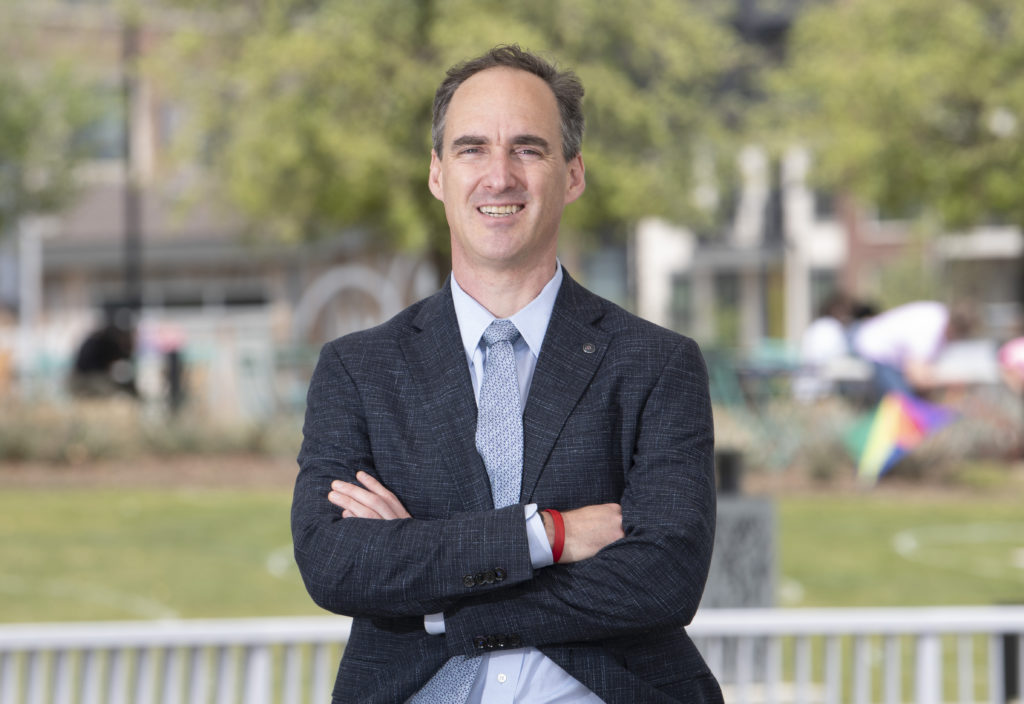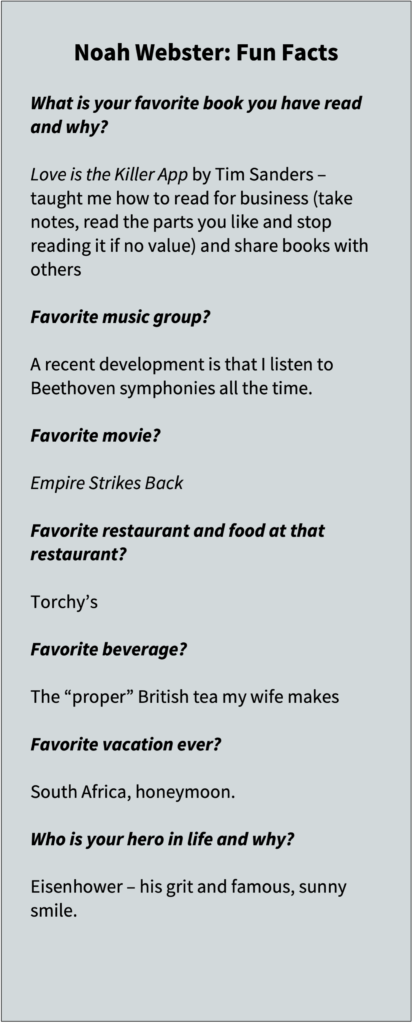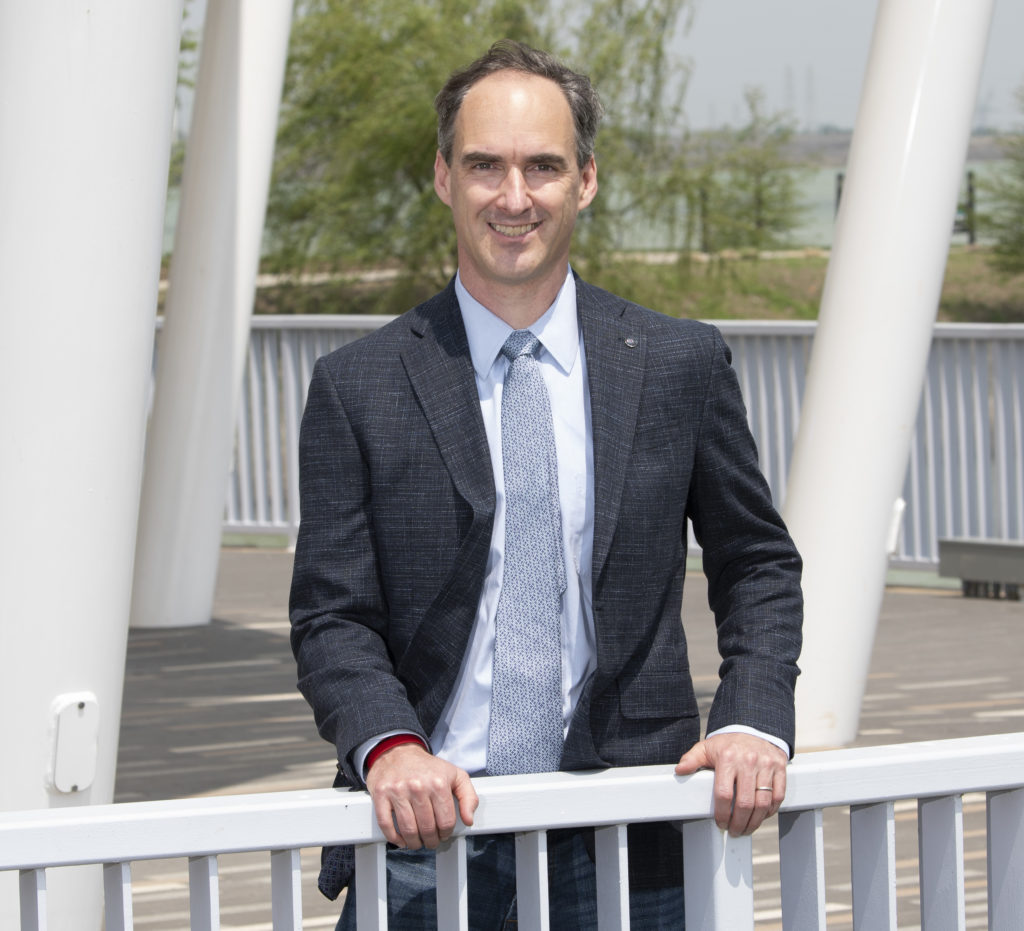
While most companies battened down the hatches in 2020 in order to weather the Covid-19 pandemic, Dallas-based Zix Corporation went searching for opportunities.
“We decided that the most resilient businesses continue to grow and continue to build to grow, even under difficult or unusual situations,” said Noah Webster chief legal and chief compliance officer at Zix, a global cloud-based cybersecurity and productivity solutions company.
“Over the past few years, we’ve expanded our product suite to include encryption, data loss prevention, advanced threat protection and unified archiving,” Webster said. “We are constantly on the lookout for new solutions to grow and increase value to customers.”
Last July, Zix, a publicly traded company with $218 million in 2020 revenue and a market cap of $400 million, discovered the perfect acquisition opportunity – an Israeli-owned company called CloudAlly that focuses on cloud-based data backup and recovery for businesses.
“We recognized CloudAlly as a great fit immediately when we heard about it,” Webster said. “With cloud backup and recovery that protects customers against ransomware and other attacks, the CloudAlly solution bolsters our existing email security portfolio. It also expands our non-email cloud offerings by covering platforms like Salesforce.”

But right away, there were obstacles – not the least of which was that the coronavirus prevented any travel to meet with the other side and thus no personal relationship and trust-building occurred between two parties in cities 6,743 miles apart.
“We have an acquisition playbook, but the CloudAlly deal forced us to almost throw it out and patiently work this deal,” he said.
Thanks to an extraordinary partnership with lead outside counsel Baker Botts and some creative problem-solving by Webster and Baker Botts lawyers, Zix announced Nov. 9 that it had acquired CloudAlly for a reported $30 million.
Citing the extraordinary transcontinental corporate transactional work required between Zix and Baker Botts, the Association of Corporate Counsel’s DFW Chapter and The Texas Lawbook have named Webster and Baker Botts as finalists for the 2020 DFW Outstanding Corporate Counsel Award for Creative Partnership.
The ACC DFW and The Lawbook will recognize the finalists and announce the winners at an awards ceremony this evening, June 3, at the George W. Bush Institute.
“In a challenging year for everyone, Noah reached out to collaborate with Baker Botts on a cross-border acquisition in Israel,” Baker Botts partner Grant Everett wrote in nominating Webster for the award.
“The deal included a new credit facility and various disclosure and governance issues,” Everett said. “Noah navigated this complex transaction in a new territory for Zix, and added to that a new credit line to finance the transaction. Between the time zone differences and the sporadic shutdowns due to the Covid-19 pandemic in Israel and various portions of the U.S., Noah and Baker Botts were able to pull a critical acquisition together under unprecedented circumstances.”
Webster spent several years growing up in Ireland and traveled throughout Europe with his family.
“My father humbly claims that he is a toilet paper salesman,” Webster told The Texas Lawbook in an interview in 2020. “In reality, he is a packaging engineer who designs and sells medical packages made from high-tech paper and plastic materials.”
Webster’s mother ran a family craft business. The Webster family tree, he says, consists of farmers and autoworkers from Michigan. One distant relative from long ago, he points out, was a lawyer and orator and a bit of a wordsmith.
In 1991, Webster started at the U.S. Military Academy at West Point – “I wanted to serve the country and have adventure,” he said – where he received his bachelor’s degree in mechanical engineering.
Five years in the U.S. Army working on construction projects in the Pacific followed. He was stationed at Schofield Barracks in Honolulu. While there, he started thinking about a future as a lawyer.
“The book A Civil Action got me hooked on the idea,” he said. “I was amazed by the commitment and ingenuity it took to defend a client’s interests. The technical issues involved definitely attracted me. I started thinking about what I wanted to do with my life, and I liked how much lawyers had to learn and know about their cases.”
Webster graduated with a law degree from the University of Illinois at Urbana-Champaign in 2003. He practiced IP litigation at Kirkland & Ellis for more than four years.
“Kirkland invests in training its young lawyers, and I reaped the benefit,” he said. “They gave me responsibility for managing a core component of a yearslong global patent battle involving Texas, California, Canada, UK, Italy and Germany. I still use the techniques learned in their training that is modeled after the National Institute for Trial Advocacy mock trial training.
“One of my favorite cases required me to compression test football helmet cheek pads with our technical expert,” he said. “I had studied compression testing as part of my mechanical engineering degree and didn’t think that I’d use the skill again.”
In January 2010, BlackBerry hired Webster to be its general counsel, where he helped manage the company’s patent litigation docket and handled corporate compliance matters.
“I prefer to have one client who I know well,” he says. “Having a deep understanding of the business allows me to close deals and provide better advice.”

“We decided that the most resilient businesses continue to grow and continue to build to grow, even under difficult or unusual situations.”
— Noah Webster
In June 2018, Webster jumped to Zix Corporation, where he is the only lawyer.
When he first started his new job, Webester was determined to impress his bosses right away. Zix executives had tried for years to purchase the domain Zix.com, but an artist in Oakland owned it and refused to sell. Several times, the company thought it was close to a deal, but each time the artist declined.
Webster, wearing a Hawaiian shirt, flew to Oakland, hoping a face-to-face would help, but the man wasn’t home. Webster did meet with the artist’s neighbor, who looked after the man.
“I tried everything. We bought zix.art and offered to give him that and pay him, but he declined, saying it wasn’t about the money,” he said.
Webster never gave up and kept calling the neighbor. Finally, the neighbor called Webster in December 2018 and told him that the man was in a dispute with the city over his garbage bill and that the fees against him were accruing.
“We set up an escrow account and got the deal done,” he says. “That was far from the biggest or most important transaction I’ve done at Zix, but it was one of the most satisfying.”
In 2019, Webster led Zix in three transformational transactions, including:
- A $275 million acquisition of AppRiver;
- A $100 million private placement (aka PIPE investment) with True Wind Capital; and
- A $210 million credit facility with a syndicate of lenders.
Three months after the AppRiver acquisition, Webster led Zix’s $14 million purchase of email security provider DeliverySlip. He’s also resolved a patent lawsuit against the company without Zix having to pay any money.
While the CloudAlly transaction was not Zix’s largest in dollar terms, it was its first cross-border M&A deal and one of the most complex.
As part of the C-level executive team, Webster monitors the potential M&A pipeline.
“My involvement increases when we are ready to send a letter of intent,” he said. “Then as a lead on our M&A team, I conduct legal and compliance diligence, oversee all diligence with our chief business officer, report to the board on risk and negotiate the purchase agreement.”
Webster hired Baker Botts, which has a long-standing relationship with Zix that was formed before Webster joined the company.
“The board and our management team trusts the firm and partners Don McDermett and Grant Everett,” he said. “As the company has grown, the joint Zix and Baker Botts team has developed a strong ‘muscle’ for conducting acquisitions.”
The CloudAlly transaction presented several issues, including time differences, software export regulations and taxes.
Webster said the CloudAlly’s founders were surfers and scuba divers.
“Any time you are dealing with founders of a business, there are complications,” he said. “This business is their dream, and they are selling their baby. There’s a lot of emotion involved.
“This is where the personal connection comes in, where it would have been nice to have face-to-face meetings to develop a relationship and make personal connections,” Webster said. “In person, they could see that we are committed to being good custodians of their business and taking care of their employees.”
Webster said there were times when “the parties were not open to fairly typical, reasonable requests” to allow Zix to conduct its normal due diligence and gauge risks.
“In this context, solving the issues that arose required patience,” he said. “We had to actively listen to the other side and explain our positions carefully as we went. We would occasionally resort to one-to-one calls between business counterparts to make progress.
Webster said Zix’s chief financial officer, Dave Rockvam, and his strong “Texas twang was particularly helpful at a key juncture and was well received in Israel and worked wonders.”
The most creative part from a legal perspective, according to Webster, was the risk management approach.
“The situation made it difficult to assess and mitigate certain risks,” he said. “We found a way around certain obstacles by conducting external research on our own, so as not to depend on or wait for diligence directly from the target.”
He said Baker Botts’ “international experience was critical where issues would spread beyond Israel and into other countries.
“Given the risk of this international transaction and difficulties in trust and communication over Zoom, we had to assess each observed risk and address the issue in the agreement,” he said.
Webster said “the magical creativity” was developing a “realistic, practical view of each risk and then using ingenuity to make sure mitigation was appropriately woven into the agreement.”
Baker Botts, he said, drafted an initial agreement “that gave us lots of room to maneuver, which ultimately allowed us to get the deal done.”
“Baker Botts gave Zix reliable advice on which risks we could live with and accept,” he said.
Due to the pandemic, there could not be a closing dinner. Instead, the management teams held an introductory Zoom meeting in which each person shared what Webster calls a “Me Map.”
“The ‘Me Map’ contains photos about our families, interests and careers,” he said. “We all felt great after that meeting and knew the acquisition was going to be successful. In hindsight, a meeting like this earlier in the process — although possibly difficult to organize without knowing the deal is going to close – would have benefited the negotiation and diligence process.”
